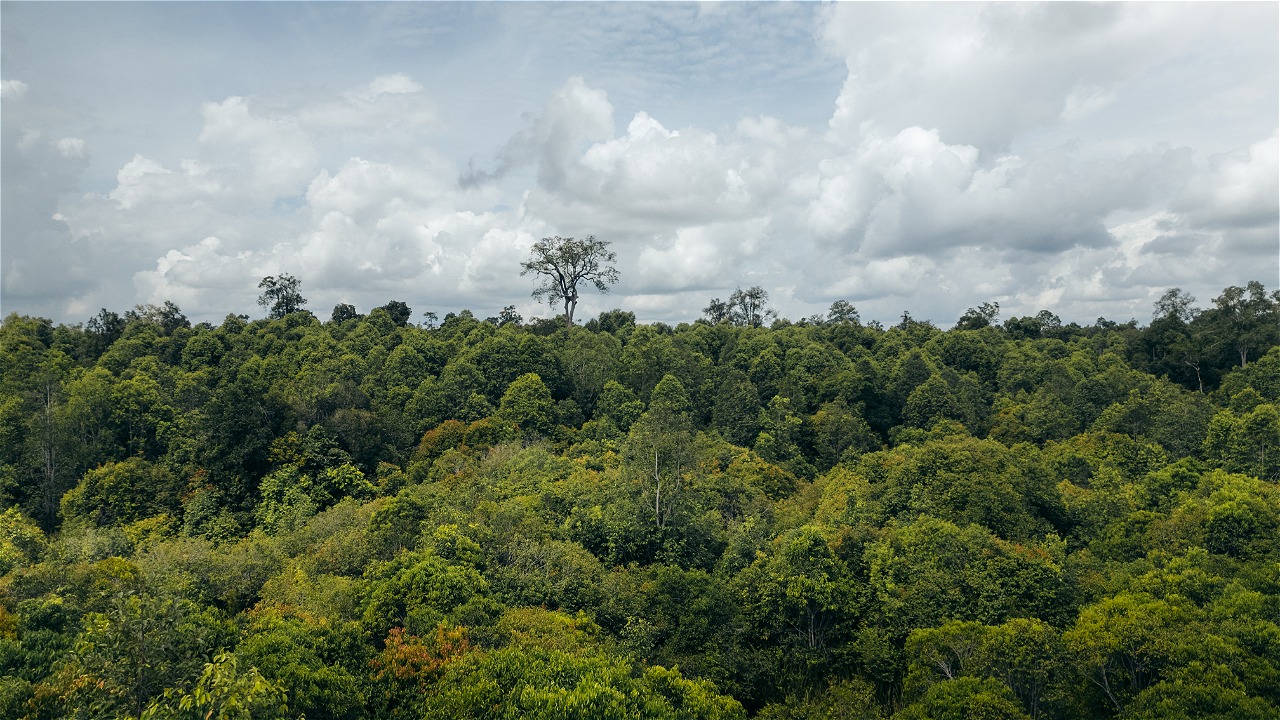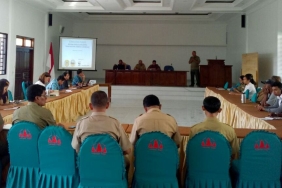PT. DWIMAJAYA UTAMA IN THE HEART OF BORNEO (HOB) RECEIVES FSC CERTIFICATION
On March 20, 2013, The Borneo Initiative (TBI) and WWF's Heart of Borneo (HoB) Program celebrated a landmark event for sustainable forest development in Indonesia and for the forests of the Borneo region when it awarded an FSC certificate to a timber company, PT Dwimajaya Utama.
PT Dwimajaya Utama is the seventh company located in the HoB to receive an FSC certificate. PT Dwimajaya Utama's success comes after a two-year process of independent audits of existing concession management and the development of a management plan with stakeholders to include timber harvesting activities that have minimal impact on forest sustainability; replanting; avoiding displacement of indigenous communities and losses to wildlife and their habitats due to company activities.
Tom Maddox, Leader WWF HoB Global Initiative, congratulated PT Dwimajaya Utama on achieving FSC certification and welcomed the new visionary company to TBI, towards greener and more sustainable HoB forest management.
""We need to continue to build a sustainable forestry business in the HoB area through certification schemes. We need to get more timber companies operating in the Borneo region to adopt this scheme. Why is this important? Because certification is a tool towards sustainable development. With this, our journey towards sustainable Bornean timber production can be accelerated, more and further," he said.
Located in the upper reaches of the Katingan watershed and partly within Gunung Mas Regency, PT Dwimajaya Utama's concession area is an important habitat for protected flora and fauna, including orangutans, Bornean gibbons, clouded leopards and hornbills.
PT Dwimajaya Utama has concession rights covering 127,300 hectares with four commercial timber species, namely Bangkirai (Shorea laevis), Red Meranti (Shorea spp), Mersawa (Anisoptera spp), and Keruing (Dipterocarpus spp).
The forestry sector is one of the three sectors that have a high impact on forest sustainability in the HoB. Timber, oil palm plantations and mining, represent sectors that have a large scale and high impact on Borneo's economy.
Unfortunately, Borneo's forestry sector often receives negative international publicity for its impact on Borneo's own forests. There is a growing awareness among consumers of the negative environmental and social impacts that accompany unsustainably produced forest products. This has led to a growing demand for sustainably sourced forest products, at least since the last 15 years.
To ensure that access to global markets for timber sales from Indonesia or Borneo remains open and even greater, timber companies need to guarantee buyers that timber and its derivative products are legal and come from environmentally friendly production processes. This dynamic encourages timber companies to conduct their business responsibly and in balance with society and the environment.
Certification is one way to provide assurance to the market that timber comes from well-managed forests. Certification ensures environmental, social and economic benefits. Long-term sustainability can also be promoted through certification as concession managers will be required to improve and enhance monitoring systems and implement the results. Ultimately, forest productivity will increase and the impact of logging on biodiversity and species composition in the forest will be minimized.
Rizal Bukhari from TBI stated that his organization supports efforts towards sustainable HoB forests. Since 2009 until now TBI has assisted 31 concessions of forested areas or equivalent to 3.3 million hectares. Seven of these concessions have received FSC certification, six of them are located within the HoB, and one is directly adjacent to the HoB.
""The certificate handover will also be the momentum for the start of certification negotiations with seven new concessions equivalent to 800,000 hectares, four of which are in the HoB,"" Rizal continued.
At the signing ceremony, TBI will also highlight the two certification schemes for Indonesian timber companies, FSC and SVLK (Timber Legality Verification System), discussing the benefits of implementing dual certification. Discussions will be built around how to apply these different certification schemes at the field level and how to maximize their benefits. The event is themed around integrating certification for legality (through SVLK) and sustainability (through PHPL-FSC) in sustainable natural forest management in Indonesia.





